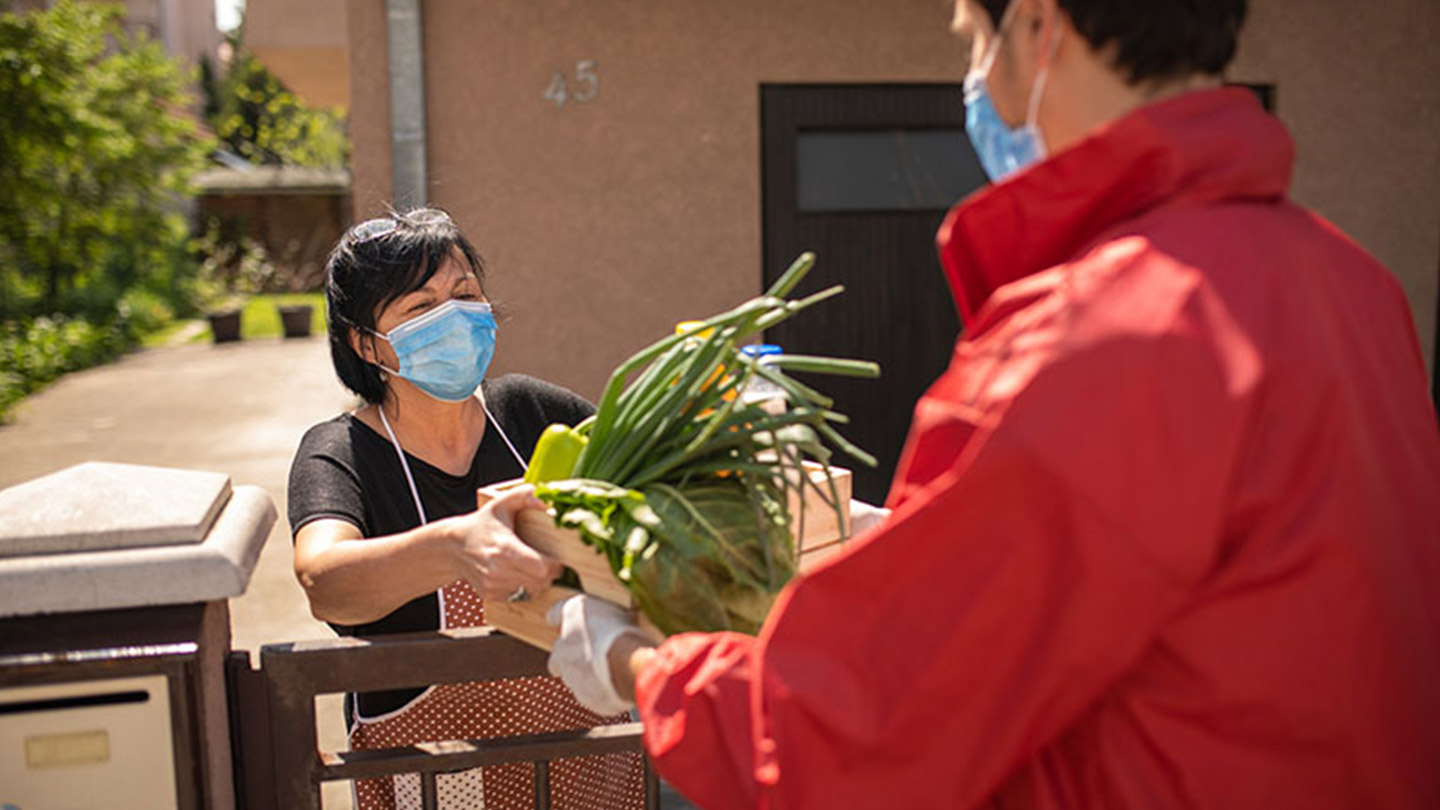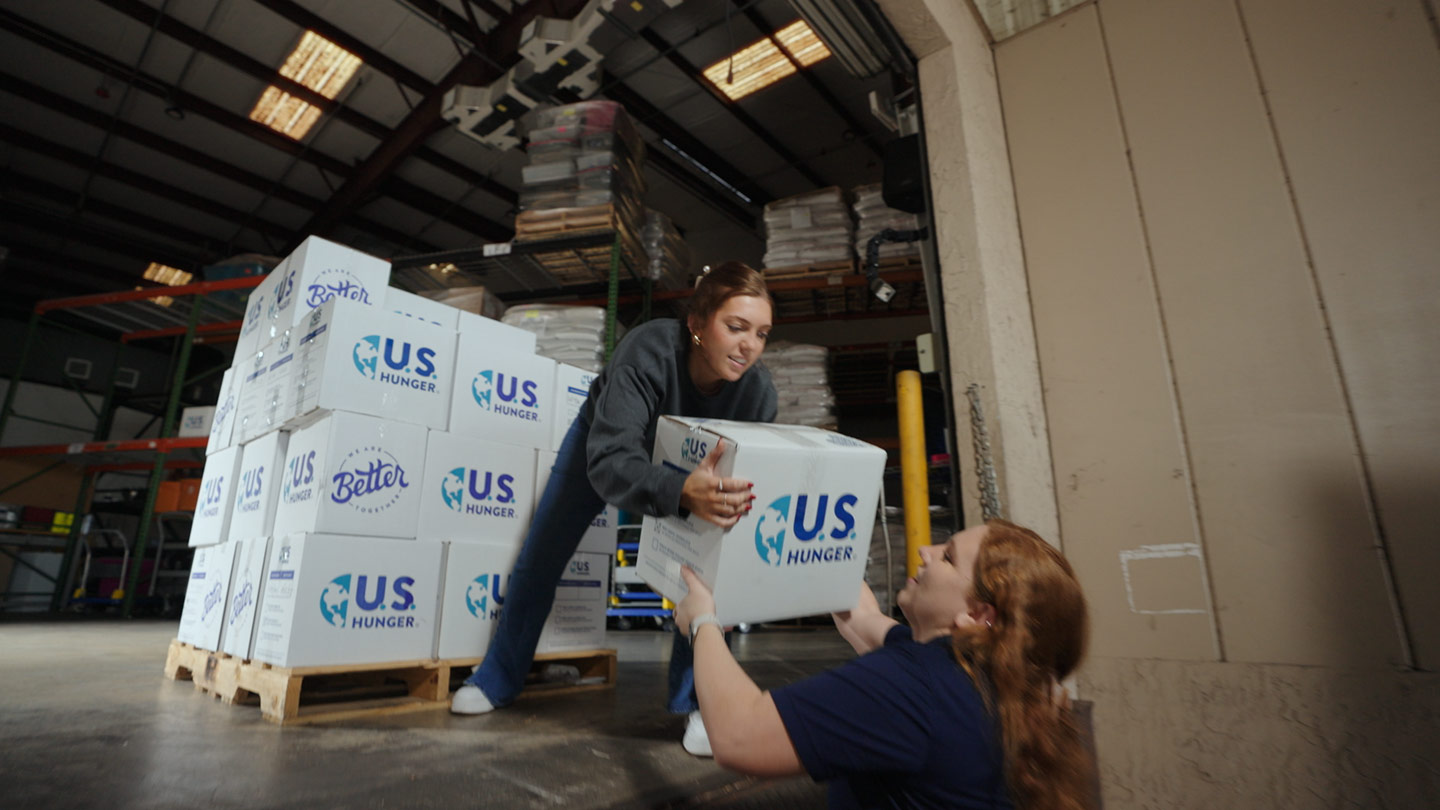VO: “I live with my father who is disabled and I’m out of work.”
VO: “The kids eat every meal, but more times than not, at least one adult doesn’t eat.”
EZEKIEL BROOKS : “Feeding five growing children has been tough.”
RICK WHITTED: U.S. Hunger is a food organization, but it's really not about food at all.
RICK WHITTED: When we started hearing the stories, everything changed.
EZEKIEL BROOKS: This year, we're feeding almost 19 million people.
EZEKIEL BROOKS: But feeding people indefinitely is not the solution.
EZEKIEL BROOKS And so we decided, we need to figure out why are they hungry in the first place?
RICK WHITTED: So we created a simple survey. The last question was, “Why are you coming to us?"
RICK WHITTED Having a large set of data in the form of stories, we really had a seismic shift.
RICK WHITTED: We evolved from "how do we get food into the community?" to "why do we have to get food into the community?"
RICK WHITTED: Our mission is to understand the data.
EZEKIEL BROOKS: This is where JPMorganChase came in to help us.
DHANASHRI PITALE: We have been working with U.S. Hunger for years through Tech for Social Good.
DHANASHRI PITALE: The mission of Tech for Social Good is to drive impact in our communities through the skillset of our tech workforce.
DHANASHRI PITALE: We have programs where we pair highly skilled JPMorganChase technologists with nonprofit organizations around the world to solve a problem that they are facing.
DHANASHRI PITALE: When U.S. Hunger came to us they had literally a gold mine of data, and they really did not know where to start.
DHANASHRI PITALE: We help them take those next steps.
EZEKIEL BROOKS: Year number one, we had hundreds of thousands of applications coming in.
EZEKIEL BROOKS: JPMorganChase helped us with machine learning to classify all of the applications from high, medium to low urgency.
RICK WHITTED: The second project we graduated to AI, beginning to turn the data we'd sorted into data analytics.
EZEKIEL BROOKS: The data tells us that there’s a whole universe of things beyond food that are actually the root of the problem.
RICK WHITTED: Things like housing, and transportation, utilities, access to health care. Those are really the driving forces.
STEVE JANSEN: During our Global Technology Senior Leaders Conference I was part of a group of around 50 MDs that had an ideation workshop with U.S. Hunger.
STEVE JANSEN: So I was very excited to be able to sponsor one of the ideas coming out of that.
RICK WHITTED: We walked away with a real, clear strategy on how to apply the technology in the most impactful way.
STEVE JANSEN: In many cases they can tailor a more targeted pitch to a potential corporate donor. Create insights with potential partners.
Or they can help inspire individual donors.
RICK WHITTED: So that next step for us it’s connecting to community based organizations in housing, education, employment, healthcare support who actually do have the solution.
RICK WHITTED: There’s no way we could’ve gotten this far without JPMorganChase.
EZEKIEL BROOKS: With this data and technology, the use cases are virtually infinite.
RICK WHITTED: It's not data. It's a grandmother being a mom again. It's a veteran who just adopted two foster kids.
RICK WHITTED: It's a life. And the work we do enshrines the life through good technology.
RICK WHITTED: Will we end hunger? I don’t know. But will we improve and uplift the lived experience? Absolutely.





